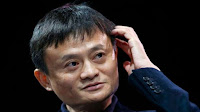By Bryan Kramer
It used to be that marketing was segmented into two categories; business-to-business (B2B) or business-to-consumer (B2C). This was done (I assume), to separate specialties, audiences and segments in an effort to more highly target the groups of people who ultimately would consume a brand’s message.
What it really did, however, was create an unnatural language for marketers – with words like “synergy” and “speeds and feeds” – to tell the stories of products to their buyers and partners. It’s become like one massive game of telephone, where by the time a message gets to the person actually buying the product, the things that make it special have been swallowed by marketing vernacular.
Consumers are confused. Why can’t we make it simple for them to understand what we’re selling, to share their experiences and the value they felt with others? More importantly, why is it that what we’re marketing most often does not align to actual consumer experiences?
The fact is that the lines are so far blurred now between the two marketing segments that it’s hard to differentiate between the two anymore. We all need to think like the consumers we are, putting ourselves in the mindset of the buyer instead of trying to speak such an intensely sophisticated language full of acronyms and big words, in order to sound smarter.
Marketing increasingly strives to become one-to-one, with solutions to collect and wrangle the big data about us to serve up more personalized offers and experiences. On the other hand, social has become a more public and vast medium, where the things we share skyrocket quickly to a “one-to-many” experience. The dichotomy between marketing and social has actually flipped… and it’s out of balance. Social and marketing need to work together to personalize individual conversations, as well as deliver shared global experiences that crowds of common values can benefit from. This is what our social and digital mediums have gifted us, and how humans interact and feel more compelled take action.
So, this is how I see it:
Businesses do not have emotion. People do.
People want to be a part of something bigger than themselves.
People want to feel something.
People want to be included.
People want to understand.
But people are also humans, and with that comes mistakes. Missteps. Failures. As humans, it’s in our nature to say the wrong thing, get embarrassed, and not realize the consequences of our actions. The rise of social media has given a digital platform to the dark side of anonymity, both as individuals and as crowds. I say it’s time to lay down the virtual pitchforks and torches and bring this behavior back into balance. The delightful side of humanity holds with it empathy, understanding, and forgiveness, and when remembered in our communication, it ties us together as a common group.
Communication shouldn’t be complicated. It should just be genuine and simple, with the humility and understanding that we’re all multi-dimensional humans, everyone of which has spent time in both the dark and delightful parts of life.
That’s human to human. That is #H2H.


